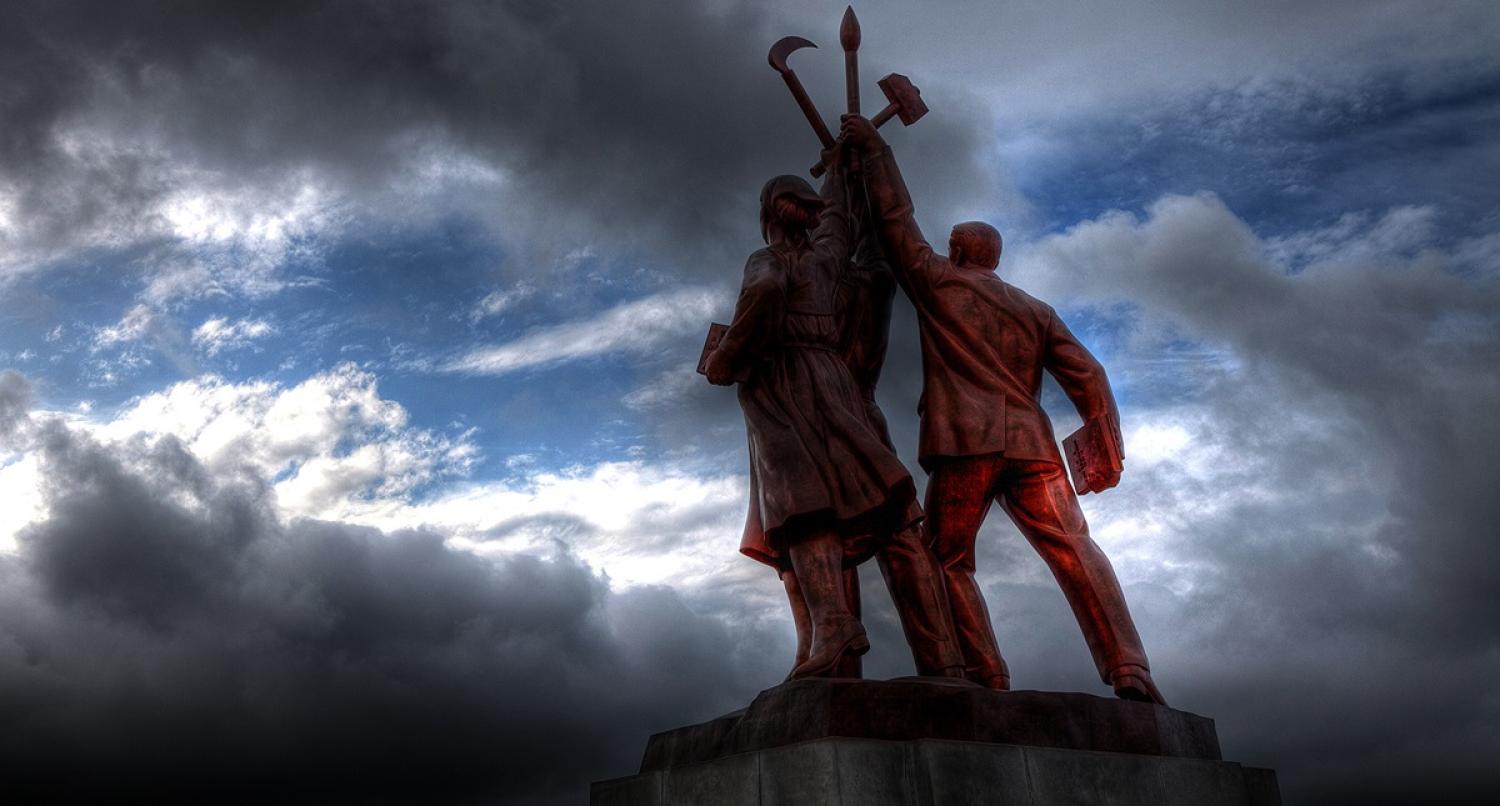While not strategically sensible, you have little choice but to return fire when a rival threatens you or embarrasses you. It is the nature of rivalry, and it's why it is best to avoid collecting enemies if you can help it. So when Kim Jong Un responded on Thursday to Donald Trump’s UN General Assembly speech, in which Trump threatened to eliminate North Korea if the US was attacked, I was as curious as anyone else about what Kim would say.
I’ve read thousands of Korean Central News Agency (KCNA; the state news agency of North Korea) statements going back to the 1960s. Here’s what I observed from reading this Kim Jong Un statement.
First, many of the most attention-grabbing phrases Kim Jong Un used were familiar rhetorical tropes. In times of crisis, real or artificially constructed, North Korean media has used the phrase 'touch-and-go' to convey the precariousness of the situation. Maligning Trump as a 'rogue and a gangster' is not the worst thing North Korea has said about a sitting president, and North Korea has often launched personalised invectives at the leaders of enemy countries. We should also recall that North Korea once called for the execution of South Korea’s former president, Park Geun Hye.
Second, a number of Western commentators have suggested Trump handed Kim Jong Un a gift with that UN speech, confirming what the North Korean regime has told its people all along: that the US is out to destroy them all. But that’s not the right way to look at it.
Trump’s speech was dangerous and unhelpful because it puts Kim Jong Un in a corner, not because it helps North Korean propaganda (even though it does). It’s clear from the Kim statement that he felt personally insulted by Trump’s speech ('Trump has denied the existence of and insulted me and my country in front of the eyes of the world...'). Even though some of the phrases and types of threat rhetoric were recycled, it’s rare that the phrases come from Kim Jong Un directly. The bluster for which North Korea is famous doesn’t usually get attributed to individuals, let alone to the leader.
Third, to the extent that Kim Jong Un had been holding open a door to a diplomatic solution, he has now closed it. The tone of the statement has the ring of finality and resolve. Kim reads Trump’s statement as confirmation that 'the path I chose is correct and that it is the one I have to follow to the last.' You might interpret this as referring to North Korea’s nuclear program, but that was a path he inherited, not one he chose. I’m concerned the path he has in mind is the path to a forced solution to the problem of Korean unification and the fracture of the US-South Korea alliance.
Finally, I’ve written elsewhere about North Korea’s coercive 'theory of victory', which is highly offensive and reputation-based, meaning North Korean elites believe that small acts of violence or friction accrue to having large deterrent effects. I’ve also argued previously that the US and North Korea appear locked into the early steps of a 'conflict spiral' because the Trump Administration has decided to mirror North Korea’s strategy rather than adapt to it.
Kim Jong Un’s statement freaks me out because it’s hard not to read it as confirming my fear that Kim believes North Korea needs to go on the offensive. As ever, this offensive action will be of a time, place, and character of North Korea's choosing; it might not even be violent, initially.
But make no mistake: the political utility North Korea attributes to offensive action means it needs to do something provocative for the sake of deterrence, and perhaps too for salving wounded pride. Given how primed Washington’s hawks are for a fight with North Korea, I doubt Trump will respond to North Korean friction with restraint, as past US presidents have.
